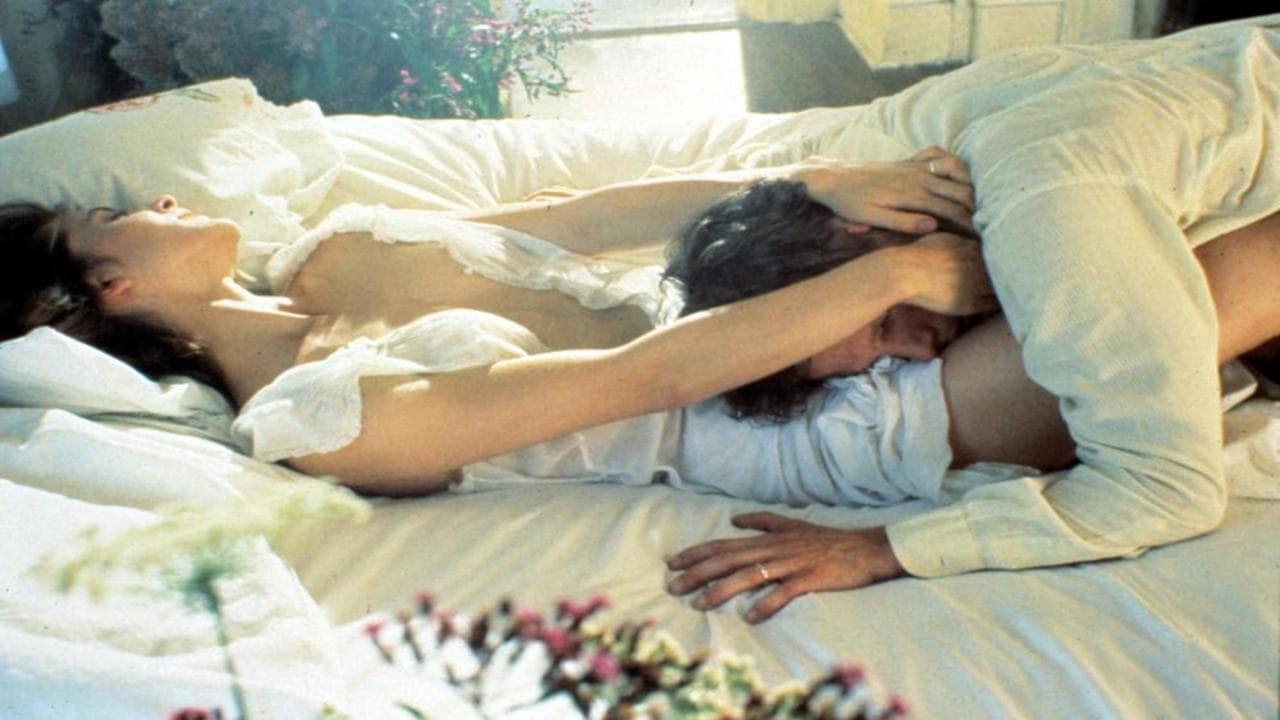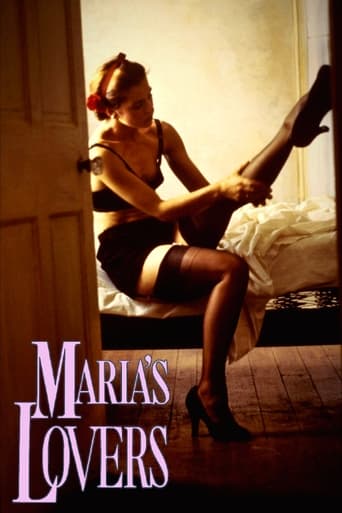

Nastassja Kinski evokes something in the viewer. In Maria's Lovers, she is able to transform from an adolescent sexual lolita to a captivating experienced woman. I viewed the film in a foreign language so I just examined the characters, pacing, lighting, and what I witnessed was an obscure treasure from the 1980's. Nastassja Kinski was in her prime in 1984. She was an eccentric actor to the American audience, ravishing, spell binding, odd. Maria's Lovers is beautiful and lyrical, a film that lingers in the mind, asking questions and relating to moments of lovers. A fascinating study. The directing and cinematography are graceful. I love when we see Maria for the first time. She is so captivating and yet, something else...not sure what...something cool and refreshing. A Film for the Registry.
... View More"Maria's Lovers" is, first of all, a beautiful-looking film. Juan Ruiz Anchía does a fantastic job photographing the film, making wonderful use of light. Scene after scene is brilliantly framed and shot, at times feeling like a series of photographs. Anchía and director Andrei Konchalovsky make a great team. But this is essential to make a film such as this watchable, because the general attitude of virtually every character is endlessly frustrating. Most are motivated by sex, some by fear, some by greed, some by possessiveness, some by misguided innocence.There are no particular flaws in any of the performances. Kinski, Savage, Mitchum and Carradine create characters of real depth. There are times when "Maria's Lovers" has the overpowering sense of being made in the mold of the great classic tragedies. Which is to say, everyone is more miserable more often than is entirely likely in real life. But I could be wrong, and perhaps there are lives which very closely parallel those shown here. Either way, it is a supremely difficult, painful, intense, and ultimately believable picture. To the right audience, it could very nearly be considered perfect. It's a clean, true, human depiction.
... View MoreBeautifully shot – almost too beautifully given the mundane storyline – and unevenly acted, the film deserves kudos for an intelligent rendering of an adult problem: the post-traumatic stress of a returning WW2 vet, and the miseries it puts him and his wife through.The dramatic thrust of the film – erroneously labeled European by some viewers – is hampered, not by its slow unfolding, but by passive characters. John Savage is sometimes strong and sometimes not in his portrayal, but he's been stymied by a script that has him only desultorily going after various goals. Maria, a far better if still uneven performance by Nastassja Kinski (whose talent is strong; the inconsistency is clearly the director's fault), also only gradually commits to her husband. That's fine and real but with only minor characters (Vincent Spano, Keith Caradine) strongly after an objective, the movie is moribund at its center for much of its running time. (Robert Mitchum's character and performance are both dismal.) The film gathers some tension once Nastassja is mit Kind, and Savage's predicament reaches the breaking point. The resolution is somewhat satisfying though not entirely credible (Savage feels more like a life-long alcoholic at this point) and comes about through his chance meeting with Caradine's philanderer. More literary than filmic in its construction, the movie's best feature is Nastassja's performance. But because her life, like her husband's, feels more acted upon than really lived, the movie just lumbers.
... View MoreThe director is credited with the song "Maria's Eyes", but having just seen a theater version of Dr. Dolittle, I heard a song that sounded too similar for coincidence: "When I Look in Your Eyes", written by Leslie Bricusse. However, I'll grant that the original lacks something by being sung to a seal instead of Natassja Kinksi.Aside from the musical borrowing, you have to admire Konchalovsky for wanting to tackle the material, revolving around small-town characters and impotence; he really brings out the dignified melancholy of a rust-belt town with steep streets, passing freight trains, weak sunlight and beautiful countryside. The movie is uneven in places, mostly from the performances: Kinski seems unsure whether to play her character modestly or with sashaying allure; Savage has a tough job playing an unsympathetic character, but sometimes makes it worse with explosive histrionics; Mitchum is stuck with bad dialog ("those eyes"). Raising the movie above these problems is a good basic story, affecting shots and images, and the majority of Kinski and Savage's scenes together.
... View More